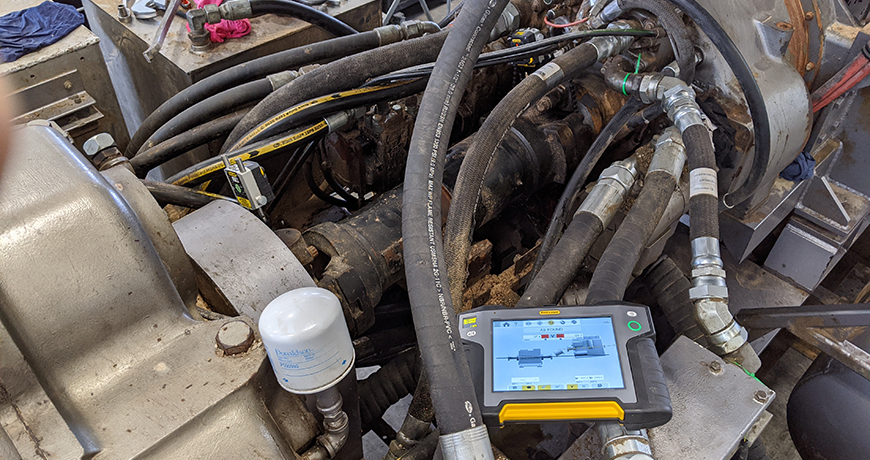I attended a training recently on the Easy-Laser XT770 alignment system at an oil and gas fracking company in West Texas. During the training I heard the term “grease worms” and even though I have been in the lubrication field for 29 years, I was unfamiliar with this animal.

Come to find out, it is a term used to describe an application completely devoid of any grease. In other words, someone didn’t grease the equipment at all and according to the guilty parties, these fictitious “grease worms” must have eaten the grease!
That got me thinking about the different oil viscosities and grease thickeners and how not all greases are created equal. We must look at each application individually and determine the correct oil viscosity and the correct thickener or “soap” that will work best in the application. You see, the thickeners have different characteristics that affect the performance. The term “LETS” can get us close to our final selection.
- Load – what load will the bearing be supporting during its life cycle? Heavily loaded bearings are typically slower moving and would require a more viscous base oil to help separate the metal surfaces moving opposite each other. I might choose a calcium sulfonate thickener for this application because this thickener has excellent load carrying capabilities.
- Environment – where will the bearing be located? Is it outside, exposed to the elements? Is it in the fracking world where water, dust, dirt, vibration, rain, or chemicals etc. will have an effect on the grease’s performance? Choose the thickener wisely as now a lithium complex or aluminum complex soap may be the best general purpose option.
- Temperature – In West Texas, the temperature swings can be 60 degrees from night to day. This might affect the performance of the grease as it relates to pumpability, especially in an automatic grease system like this facility was using. Now, the thickener might deter the flow of the grease as some soaps are known not to pump well, like a calcium sulfonate.
- Speed – what is the bearing speed? Faster and smaller typically have the need for a lighter viscosity base oil and a more flowable thickener. Conversely, a large, heavily loaded slow moving bearing would require a more viscous base oil and a more robust soap to help carry the load.
In conclusion, LETS investigate each application on its own merits to make the best final determination for which grease should be used; and, precision lubrication using ultrasound can help ensure that the right amount of grease is being used, and might just help avoid the infiltration of the dreaded “grease worm”!
Filed under:
Lubrication, Maintenance Tips by Paul Llewellyn CRL, CLS, MLT-II, MLA-II
